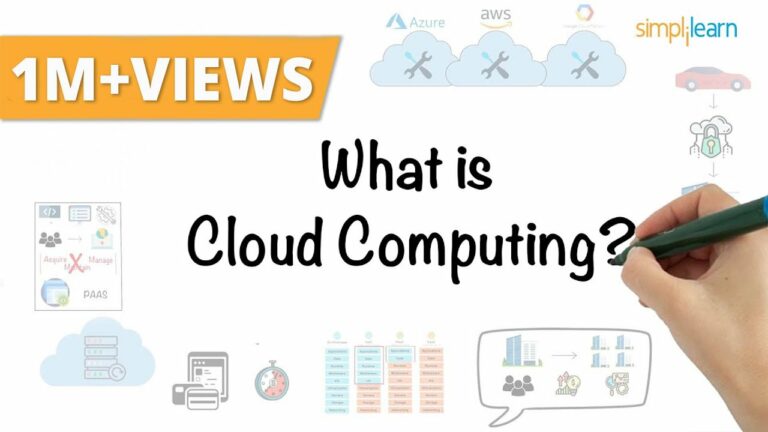You may be curious about web hosting. This information is not necessarily wrong. Everybody has to start from the beginning. Let’s now learn more about web hosting. Let’s start with what web hosting is and how it works. Hosting is the practice of providing bandwidth and space on a highly-powered server computer that is connected to the Internet at high speeds. Hosting companies have large networks of web server computers that are high-powered in a physical location called a data center. These servers are connected to an extremely fast and redundant Internet connection. Data centers are equipped with backup and primary power, fast Internet connections, and security personnel.
For a monthly fee, web hosting companies offer a portion of the disk space and bandwidth available to customers. After signing up, customers can upload files to their personal web space. This information is available to everyone who is interested via the Internet. The monthly cost of web hosting is far less than the cost of running a server from your home or data center. These companies exist because they are affordable. These companies take care of all your technical needs, including hardware and software.
Types of web hosting
There are many types of web hosting, but the most popular are shared, reseller and dedicated. Each type of hosting serves a different purpose.
Shared web hosting
The most popular type of hosting is shared web hosting. The web hosting company provides you with a small amount of disk space and bandwidth on a powerful server. This server hosts many other websites. The hosting company will likely have several servers in large data centers. As many websites share the resources of the server as they have been allocated If you’re looking for web hosting at a low price and have less than two thousand visitors per day, shared web hosting might be the best option.
Reseller web hosting
Reseller web hosting offers a low-cost and popular way to start your own web hosting company. There are two types: private-label reseller hosting and reseller of services reseller hosting. Private-label reseller plans are the best because you have full control over your customers’ websites. Private-label plans allow the reseller to keep the monthly payment from the web-hosting client, but the reseller will need to pay a monthly fee for reseller space to the larger company.
Private-label resellers can sell more hosting accounts than they can handle, which means that they make more money. Private-label hosting is more cost-effective than shared hosting. You can host many more websites with private-label hosting. This is an excellent solution for anyone who needs to host multiple sites in one place to save money. Reseller of Services plans allow you to resell regular web hosting plans from a larger company. However, you will receive a discount for providing the customer as well as a monthly fee as long as they are a customer. You do not have control over the customer’s websites, and only a small portion of potential monthly revenue is yours.
Web Hosting Dedicated
Dedicated web hosting allows you to host a website at a cost-effective price without having to buy your own equipment or pay hundreds of dollars per month for an Internet connection. Dedicated hosting is a single server that hosts all other servers. This gives you the most configuration options. If you have a website that is busy, dedicated hosting will be the right choice.
Web Hosting Tips
Are you curious about the information in web hosting plans? This section will discuss the key considerations when choosing a web host.
Price
One of the most important aspects of web hosting is its price. Although there are many cheap hosting providers, they might be lacking in certain areas. Do not let the low price of a hosting plan fool you. There are many hosting companies that offer great pricing and have the same features as other providers. While price is an important decision in a web hosting plan’s selection, there are many other factors to consider when choosing a good web host.
Disk Space / Storage Space
The amount of disk space that a web host provides to you for your web files is called disk space. These days, hosting companies offer disk space plans that are measured in gigabytes. However, some still offer megabytes of storage space. You may require more or less depending on what you need for file storage space. The more space you have, the better.
Bandwidth/Data Transfer
It can make a huge difference when choosing a hosting plan. The more bandwidth that a hosting company offers, the better. As your business grows, you will be able to support more visitors to your website. Web hosting companies offering unlimited bandwidth or unmetered bandwidth should be avoided. Although many of these offers are legitimate, some web hosting companies oversell their bandwidth to make it seem like the average user doesn’t need as much.
Customer Support
It is important to offer exceptional customer service in any business. This is true even for web hosting. While many hosting companies are available 24/7 to help you with any issues that may arise on your website, there are others who are only available during certain hours. This can lead to lost revenue for businesses if your website goes down at night. It is important to ensure that the web host you choose is available at all times for support.
Money Back Guarantee
Many web hosting companies offer a 30-day money-back guarantee. While some companies will offer a longer guarantee, others may not. However, be cautious of those that do not offer a money-back guarantee. If they don’t offer a minimum of a 30-day money-back guarantee, I wouldn’t buy web hosting services from them unless they are a leader in their industry and have a great reputation.
Operating System
An operating system is software that manages the interaction of the computer user with the physical hardware. The Linux operating system is used by the vast majority of websites. Linux is generally more stable than Windows. Websites require stability. This is why I prefer hosting my websites under the Linux operating system. There are some sites that require specific features, which only Windows can fulfill. However, there are always other options.
Backup
Good web hosting companies will set up a backup schedule that regularly backs up all web servers. The better the backups, the more frequent they are. Web hosting companies should at the minimum backup files on their websites daily.
Control Panel
The control panel will be the contact point for website administrators between the host server, their machine, and the Internet. It is important to have an easy-to-use control panel interface. My favorite control panel is cPanel. It is the best web hosting control panel available today. Plesk is another great one. Many companies will also create their own control panels for you. Many web hosting companies will offer a link to a demonstration of the control panel that they use in conjunction with their hosting plans. Although the control panel you choose is up to you, it should be easy to use.
Email communication is an essential part of the Internet. Many web hosting companies will offer you more space for your email messages and email addresses than you’ll ever use. You should be wary of companies that limit the number of email addresses and message space they offer.
Uptime
The term “uptime” refers to the availability of a website that is hosted by a company. It is unrealistic to expect a company to guarantee 100% uptime. It is not possible due to hardware, software, or power outages. Most companies have a good track record of uptime and will guarantee it. It is important to keep track of uptimes provided by companies. It is unlikely that hosting with this company is worth it if it is less than 99.5%.
Statistic
It is useful for webmasters to see how many people have visited your site and where they came from. Also, how long have they stayed on your site? The web server collects this information and stores it in a log file. This data can be read by a statistics software package and provided to the webmaster. These logs can provide valuable information that will help improve the services provided to visitors of your website.
FTP
FTP is a file transfer protocol. FTP is a method of uploading and downloading large files quickly to and from a website server. FTP is a common way for web hosting companies to give their customers access. FTP is extremely useful and a great feature when you pay for web hosting accounts.
Scripting
Many scripting languages have been developed since the inception of the World Wide Web. They have helped to create the interactive and dynamic environment we now enjoy. A scripting language allows you to add functionality to your website, such as the ability to load data from an external database or calculate numbers. Electronic commerce is possible because scripting languages are available. These languages include PHP and ASP. These languages are not covered in detail here. These languages are easy to learn, so you will know what to look out for in a web server.
Databases
A database is a storage area that stores data that can be used in many different ways. Databases can be used online for applications like shopping carts, message boards, and product catalogs. The more databases your web hosting provider allows, the more applications you can install on your web server. The more experienced webmasters use databases, but you can find information online if you are interested.
With the thousands of web hosting companies available, it can be difficult to make a decision about web hosting. It is important to choose a plan that suits your needs and find a reliable hosting company. This article should have helped you make a decision on which company to host your website. Host Happy!








